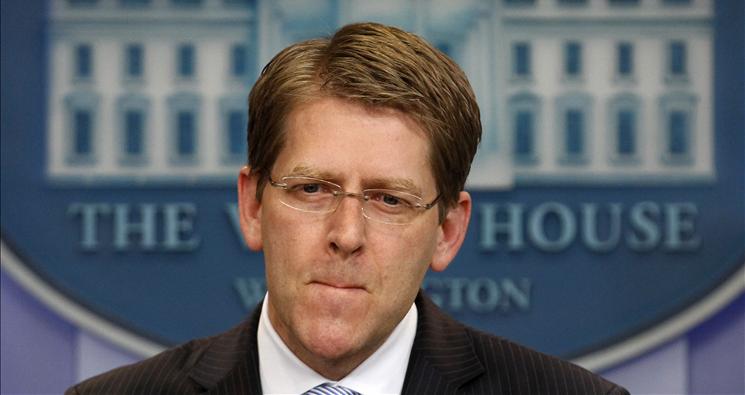No “Constitutional Rights Issues” in Violating Religious Liberties? White House Doesn’t Get It
On Tuesday, White House Press Secretary, Jay Carney, was asked about the recent announcement from HHS that religious institutions, such as religious schools and hospitals, would have to include abortifacient drugs, sterilization, and contraception in their insurance policies for employees. (For more on the HHS Rule, click here.)
At the close of the discussion, Carney was asked point blank, “What about the constitutional right to freedom of religion?”
Carney’s response: “I don’t believe there are any constitutional rights issues here…”
Coming from the spokesman for the President of the United States, the one who swore to “preserve, protect and defend the Constitution of the United States,” this statement is nothing short of alarming. If there are no constitutional rights issues here, as Carney opines, then there are no constitutional rights issues anywhere.
The first liberty mentioned in the First Amendment is not the right to assembly, petition, or even speech. The first right protected in the Bill of Rights is the free exercise of religion. This right guarantees the freedom to practice one’s religious faith without interference from, or suppression by, the government. Though there are necessary limits to the exercise of every right (one has no free speech right to falsely shout fire in a crowded theater), this is not the situation here.
In this case, we have thousands of religious colleges, hospitals, and charities, who are in effect being told that if they wish to continue in their ministries they must abandon their long held moral and religious beliefs; they must violate their conscience. The burden HHS, and thus the President, has placed on religious groups is substantial and crippling.
One might claim that these religious associations could avoid any religious conflict simply by dropping all insurance coverage for their employees. Doing so, however, would require paying the federal government a monetary penalty. Notre Dame, for example, for would have pay approximately $10 million each year should it drop insurance coverage for its employees. The idea that religious, nonprofit institutions should have to pay steep monetary fines in order to comply with the dictates of their religion violates the right to liberty set forth in the Declaration of Independence; the right to the free exercise of religion protected by the First Amendment.
Carney’s line about there being no constitutional rights at stake is an affront to religious liberty and conscience.
Thomas Jefferson wrote that “no provision in our Constitution ought to be dearer to man than that which protects the rights of conscience against the enterprise of civil authority.” James Madison held that conscience is “the most sacred of all property.” George Washington stated that “the establishment of Civil and Religious Liberty was the Motive that induced me to the field of battle.”
Our Founders understood the vital importance of protecting conscience and religious liberty. Why doesn’t Jay Carney?
Why doesn’t the President?
